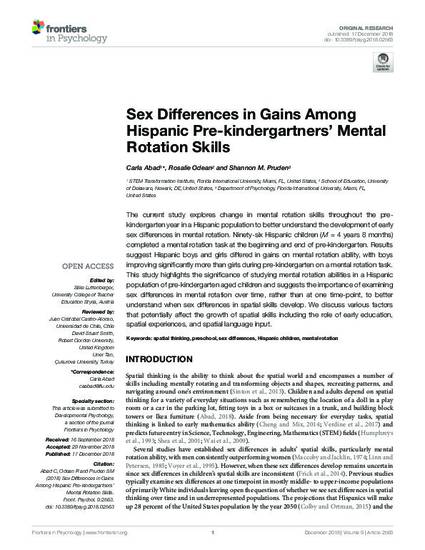
The current study explores change in mental rotation skills throughout the pre-kindergarten year in a Hispanic population to better understand the development of early sex differences in mental rotation. Ninety-six Hispanic children (M = 4 years 8 months) completed a mental rotation task at the beginning and end of pre-kindergarten. Results suggest Hispanic boys and girls differed in gains on mental rotation ability, with boys improving significantly more than girls during pre-kindergarten on a mental rotation task. This study highlights the significance of studying mental rotation abilities in a Hispanic population of pre-kindergarten aged children and suggests the importance of examining sex differences in mental rotation over time, rather than at one time-point, to better understand when sex differences in spatial skills develop. We discuss various factors that potentially affect the growth of spatial skills including the role of early education, spatial experiences, and spatial language input.
Available at: http://works.bepress.com/carla-abad/3/

Originally published in Frontiers of Psychology.